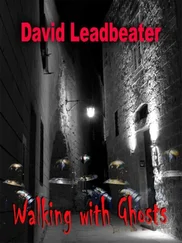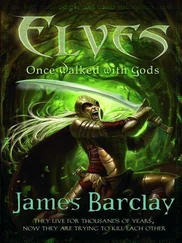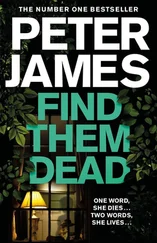“And they say I killed a man. Bull. He killed himself. Intent matters. We pay people to kill. We give them awards. We call people heroes because they get shot down trying to bomb people. How does that make you a hero? You survive the Hanoi Hilton and you’re a hero? You firebomb Dresden or Tokyo and you’re a hero? Ask about LeMay.”
“What?”
“You need to know I’ve never killed anyone. Doesn’t make sense. Why would I do that?”
“You wouldn’t.”
“Go,” he says. “I want you to go.”
Armando doesn’t move, still mesmerized. His father walks over to him and gently squeezes his neck.
“Get in the car,” his father says. “I’ll see you at home. I mean it.” He turns his son to face him and smiles.
“Dad, I don’t have a license.”
“It’s okay. Drive slow.”
“Dad.”
“Now, son.”
Armando opens the driver’s door and gets in. He lowers himself onto the seat and takes in the burning tree, his father’s back to him, and he squeezes the wheel hard and he reaches his feet out to touch the brake and gas pedals. He has practiced driving twice in their old van, but this is a newer Aerostar, electric doors and windows and side mirrors, and already he has decided not to adjust anything, but the seat is too far away and it takes him several nervous seconds to find the button that brings him closer to everything. Armando turns the key in the ignition — keys left in the van — then lights on, dashboard to life, a little brake, and he grabs the shifter and slides it to reverse, off the brake, and movement. The lights of the van spotlight his father as he pulls back, and once Armando reaches the road leading out, he shifts to drive but keeps his foot on the brake. He wipes his hands on his pants and peers over. A thought comes to him, and he watches the lit tree, his father’s hands on the top of his head, a piercing certainty: his mother will never wake.
On the drive back Armando keeps it at thirty miles per hour. He focuses on the road, how close the van’s right-side tires parallel the shoulder, anticipating oncoming headlights, late-night loggers, but after thirty minutes of slow driving he enters a space of half awareness and replays the tree lighting, the glass jug, his father’s shiny face ranting, the invisible smoke flowing into the night. He considers his father, a man who seemingly knows everything but knows how to do little, who showcases benevolence and service, a diehard Broncos fan, a hugger, quick to smile and encourage. He’s also someone who attends every fire station open house to climb on the trucks, a man who lights a match and blows it out after every bathroom trip, a person who, no matter the intention, has burned someone to death.
While his father was in prison, his mother would tell him and his sister that the fault was the dead man’s for not heeding the warnings as the fire crept toward his log home. Never a passionate vocal defense, but it was practiced, and soon she stopped talking about blame altogether. Sometimes his mother wouldn’t come home at night, and he’d call the dentists’ office where she worked, and they’d inform him that she’d left hours before. Once she called him from Raton to tell him that there were extra frozen waffles in the freezer in the basement, that this would take care of him and his sister until she returned, but she was always home on Sundays, when she would dress up and haul them to church, a family procession he didn’t dread unless it was NFL season and the Broncos played the early game.
Driving down off the Front Range he passes a large truck heading in the opposite direction, and although he can’t make out the driver, Armando imagines a Forest Service uniform and a sidearm. He slows the van and pictures his father standing near the fire. When the truck pulls up to the still-burning tree, will his father run? Laugh? Align his wrists for cuffs? Then the startling thought that he might have to be the one to pull the plug on his mother if his father is in jail. He doesn’t know the rules, but as he speeds back up for home, he thinks of standing over the hospital bed when the doctor hands him the form to sign, points, says, “Sign here.” His messy signature materializes.
When Armando arrives home, his sister is watching Xena: Warrior Princess and eating a bowl of Corn Pops.
“You stink,” she says.
The next day there’s nothing in the Colorado Springs Gazette about a fire, no rumors at his school, and when his father shows up at their house two days later he wears new clothes.
“We’re going out to eat,” he says.
Armando’s mother wakes up twenty minutes after O. J. Simpson is acquitted. Thinned out and shaky, she carries some internal organ damage, but the doctors tell the Torres family that their mother will be relatively fine, save a limp and the need to regulate her insulin for the rest of her life.
The first thing his mother asks for is a chocolate pudding pie in a graham cracker crust.
“Just this once,” says the doctor. The dessert is Armando’s favorite, and after she tears into the pie and nears the last couple of bites she asks him if he wants some.
“No,” he says, amazed.
In the weeks after his mother’s return home she discovers that she no longer likes to read, she has perfect pitch, and the color yellow brings on headaches. Armando never hears her complain about the needles.
What he does hear is her singing voice. Never one to carry a tune outside of church — and even then quietly — his mother devours CD after CD and sings along at top volume. Her favorites are Chicago’s The Chicago Transit Authority and Tower of Power’s Tower of Power. One day Armando comes home from school and his mother hands him a trombone.
“Learn, for me,” she says, eyes wide and expectant. “You don’t have to play at school.”
Soon Armando finds himself with his trombone in hand, sitting down for private lessons in a padded room inside a rancher on the east side of town. The instructor is a blind man pushing seventy.
“‘Hot Cross Buns,’” the man says, face toward the ceiling, already nodding. “First, second, third position. Ready. Play.”
The first thing the Torreses buy with the $400,000 settlement from the car company is a two-story stucco home on a hillside near the Broadmoor.
This is the home where the family watches The Empire Strikes Back on an April Saturday night.
When the film ends, Armando’s mother says, “The Force is the gospel. That movie was inspired. I believe that.”
“Mark Hamill plus car crash equals ugly Skywalker,” his father says. “Kind of resembles Joseph Smith.”
“You’re not serious,” says his mother.
Later that night, while his family sleeps, Armando watches Risky Business in his bedroom. They have a free six-month HBO trial, so he’s been staying up late. As Tom Cruise starts fondling Rebecca De Mornay onscreen, he feels himself go hard. He doesn’t know if there’s actual no-masturbation doctrine anywhere in the Bible or the Book of Mormon, but there are enough context clues in Sunday school to guess that God would be pretty pissed at a young man jobbing himself hours before taking the sacrament. But still, he’s sixteen now and this feeling is back again. De Mornay is ungodly hot, and he thinks he might come even if he doesn’t touch himself. He begs for a concession between release and salvation somewhere in the night, and within ten seconds he thinks he’s found a compromise as he grabs his penis but doesn’t move his hand. If something happens, he thinks, then it happens.
Armando’s eyes and groin sync in heartbeat rhythm. He lets the pressure build as De Mornay straddles Cruise, and for a few seconds he thinks he may suffocate. He squeezes himself slightly and briefly considers dry-humping the new couch, and he hates himself and absolves himself: he didn’t seek out this I-want-to-do-this-beautiful-woman-for-days urge, but here it is, undeniable and strong, and yet this sensation collides with the vision of a white-robed, muscular, Caucasian God peering down, shaking his head, shaking a tiny bottle of Wite-Out, taking out the thin Wite-Out brush and painting over “Armando Torres” on the “Welcome to Heaven” list. Then, too quickly for Armando and his racing insides, the sex scene ends, and fully clothed actors talk onscreen in daylight, and his blood slowly settles. He feels a dull ache, and already he thinks about how he’ll be okay if he’s asked to say a prayer in front of people in ten hours. He is still clean.
Читать дальше












